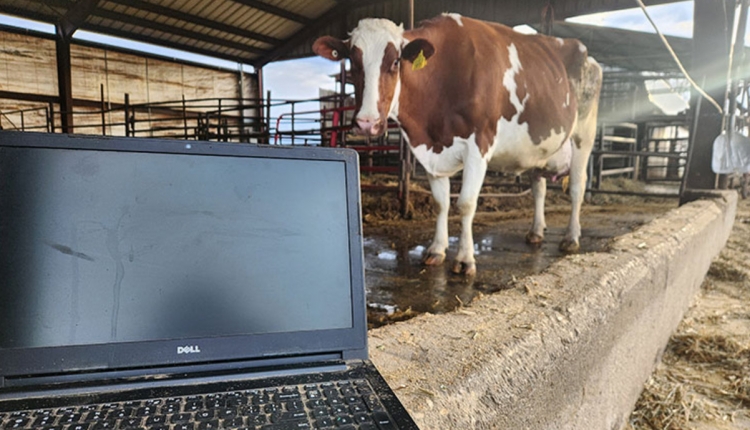by Amanda Smith, Associate Editor
 School lunch programs have become a political hot button as of late. Washington is gridlocked, as two opposing forces attempt to steer the future direction of the National School Lunch Program.
School lunch programs have become a political hot button as of late. Washington is gridlocked, as two opposing forces attempt to steer the future direction of the National School Lunch Program.
While tension takes hold in Washington, one private school in California, albeit on a much smaller scale, has already made their decision. Within the next year and a half, the meals it provides for its 140 students will be fully plant based. Dairy and meat will be terminated from the menu.
If all goes according to plan, the unaccredited MUSE School CA, owned and operated by actress Suzy Amis Cameron and director James Cameron, will be the first vegan, plant-based school in the U.S.
Yet, this is far from the model our nation's schools should strive to follow. While a private school may be able to change course and ideals more readily than a public school, we must remember that few of our nation's children fall into this economic category.
A fair percentage of our nation's young people rely on the food provided by school breakfasts and lunches for a significant portion of their caloric intake. While this may not be the case in the private school sector, public schools are a much different realm.
The lesson, therefore, needs to be moderation, not full-scale elimination. It's one thing to encourage and teach children to make healthy choices; it is another when choice is removed completely.
In her interview with NPR, Amis Cameron admitted though that it hasn't been easy to convince other parents at the school that the meat and cheese currently served at the school have to go.
It has been seen time and time again when chocolate milk is pulled from the menu. Milk consumption takes a heavy hit. A study conducted in Oregon by Cornell University's Food and Brand Lab showed that milk sales declined by 9.9 percent when the chocolate-flavored variety of the protein-packed beverage was removed. As a result, white milk sales rose by 161.2 cartons per day, but 29.4 percent of this milk was thrown away.
Dairy provides three of the five nutrients of concern, calcium, potassium and magnesium, for which children have low intakes. It plays a key role in developing a healthy diet. Colleges have aligned with dairy as they strive to provide the best nutrition to their school's athletes. It's time we stop shortchanging elementary students as their young bodies and minds grow.

The author , Amanda Smith, was an associate editor and an animal science graduate of Cornell University. Smith covered feeding, milk quality and headed up the World Dairy Expo Supplement. She grew up on a Medina, N.Y., dairy, and interned at a 1,700-cow western New York dairy, a large New York calf and heifer farm, and studied in New Zealand for one semester.

 School lunch programs have become a political hot button as of late. Washington is gridlocked, as two opposing forces attempt to steer the future direction of the National School Lunch Program.
School lunch programs have become a political hot button as of late. Washington is gridlocked, as two opposing forces attempt to steer the future direction of the National School Lunch Program. While tension takes hold in Washington, one private school in California, albeit on a much smaller scale, has already made their decision. Within the next year and a half, the meals it provides for its 140 students will be fully plant based. Dairy and meat will be terminated from the menu.
If all goes according to plan, the unaccredited MUSE School CA, owned and operated by actress Suzy Amis Cameron and director James Cameron, will be the first vegan, plant-based school in the U.S.
Yet, this is far from the model our nation's schools should strive to follow. While a private school may be able to change course and ideals more readily than a public school, we must remember that few of our nation's children fall into this economic category.
A fair percentage of our nation's young people rely on the food provided by school breakfasts and lunches for a significant portion of their caloric intake. While this may not be the case in the private school sector, public schools are a much different realm.
The lesson, therefore, needs to be moderation, not full-scale elimination. It's one thing to encourage and teach children to make healthy choices; it is another when choice is removed completely.
In her interview with NPR, Amis Cameron admitted though that it hasn't been easy to convince other parents at the school that the meat and cheese currently served at the school have to go.
It has been seen time and time again when chocolate milk is pulled from the menu. Milk consumption takes a heavy hit. A study conducted in Oregon by Cornell University's Food and Brand Lab showed that milk sales declined by 9.9 percent when the chocolate-flavored variety of the protein-packed beverage was removed. As a result, white milk sales rose by 161.2 cartons per day, but 29.4 percent of this milk was thrown away.
Dairy provides three of the five nutrients of concern, calcium, potassium and magnesium, for which children have low intakes. It plays a key role in developing a healthy diet. Colleges have aligned with dairy as they strive to provide the best nutrition to their school's athletes. It's time we stop shortchanging elementary students as their young bodies and minds grow.

The author , Amanda Smith, was an associate editor and an animal science graduate of Cornell University. Smith covered feeding, milk quality and headed up the World Dairy Expo Supplement. She grew up on a Medina, N.Y., dairy, and interned at a 1,700-cow western New York dairy, a large New York calf and heifer farm, and studied in New Zealand for one semester.










